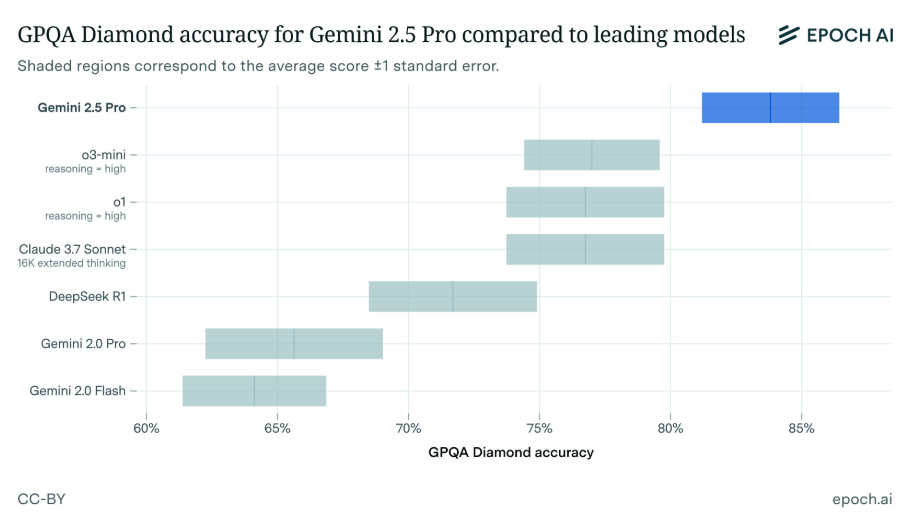Google's Gemini 2.5 leads AI race with record-breaking token capabilities
Google’s Gemini 2.5 has emerged as a frontrunner in the AI race, showcasing exceptional performance in coding, creative tasks, and IQ assessments. Powered by an unprecedented 1 million token context window, Google plans to double this capacity, further solidifying its position at the forefront of AI innovation. This breakthrough not only elevates AI capabilities but also intersects with blockchain technologies, setting new benchmarks for data security and ethical AI deployment.
Advancements in AI Capabilities
Gemini 2.5 has recently surpassed various benchmarks, asserting its dominance across different domains. It excelled in coding tasks, securing the top spot on the WebDev Arena leaderboard, a platform that ranks AI models primarily utilized for coding purposes. This achievement underscores the intensifying competition in the AI landscape, particularly against rivals like Claude and ChatGPT 4.
Delving deeper into Gemini 2.5's capabilities reveals its prowess beyond coding functionalities. The model has showcased excellence in creative writing, style control, and even in standardized IQ tests. Notably, it achieved an impressive IQ score of 124 on the Mensa Norway test, indicating its cognitive capabilities. Despite a slightly lower score in offline mode, Gemini 2.5 still stands strong, tying for second place with OpenAI’s ChatGPT.

Additionally, Gemini 2.5 demonstrated exceptional performance in various assessments, scoring 86.7% on the AIME 2025 math test and 84% on the GPQA science evaluation. Even with a modest score of 18.8% on Humanity’s Last Exam, Gemini 2.5 managed to outshine competitors, thanks to its extensive context window capable of processing up to 1 million tokens, far surpassing the capabilities of Claude and ChatGPT.
Future Developments and Implications
Google envisions expanding Gemini 2.5's token context window to 2 million tokens, signaling a continued commitment to enhancing user experience and overall performance. The commercial release of Gemini 2.5 models emphasizes their advanced reasoning capabilities, leading to improved accuracy and performance.
Beyond theoretical advancements, the practical implications of Gemini 2.5's advancements are significant. AI chatbots integrating this technology are revolutionizing workplace efficiency by introducing automation and personalization at unprecedented levels. Government agencies are also exploring the potential of AI to enhance public services, albeit with concerns about misuse and ethical implications such as censorship.
The convergence of AI and blockchain technologies is a significant trend in the tech industry. Innovations like the launch of Space and Time’s mainnet showcase the collaborative efforts leveraging zero-knowledge proofs to enhance data security and transparency across digital asset service providers. This collaboration underscores the wide-ranging applications of AI and blockchain, spanning from decentralized finance (DeFi) to gaming, and highlights the potential for more secure and efficient systems.
The Future of AI and Blockchain Integration
Researchers are actively investigating the synergy between AI and blockchain to combat misinformation and biases in AI-generated content. By integrating enterprise blockchain systems, data integrity and ownership can be safeguarded, crucial aspects for ethical and effective AI deployment in a complex technological landscape.

The ongoing competition among AI models like Gemini 2.5 promises exciting prospects for innovation in various sectors. These advancements redefine how we interact with technology, paving the way for a future where AI, blockchain, and real-world applications converge to shape the technological landscape.
Sources: Noah Wire Services




















